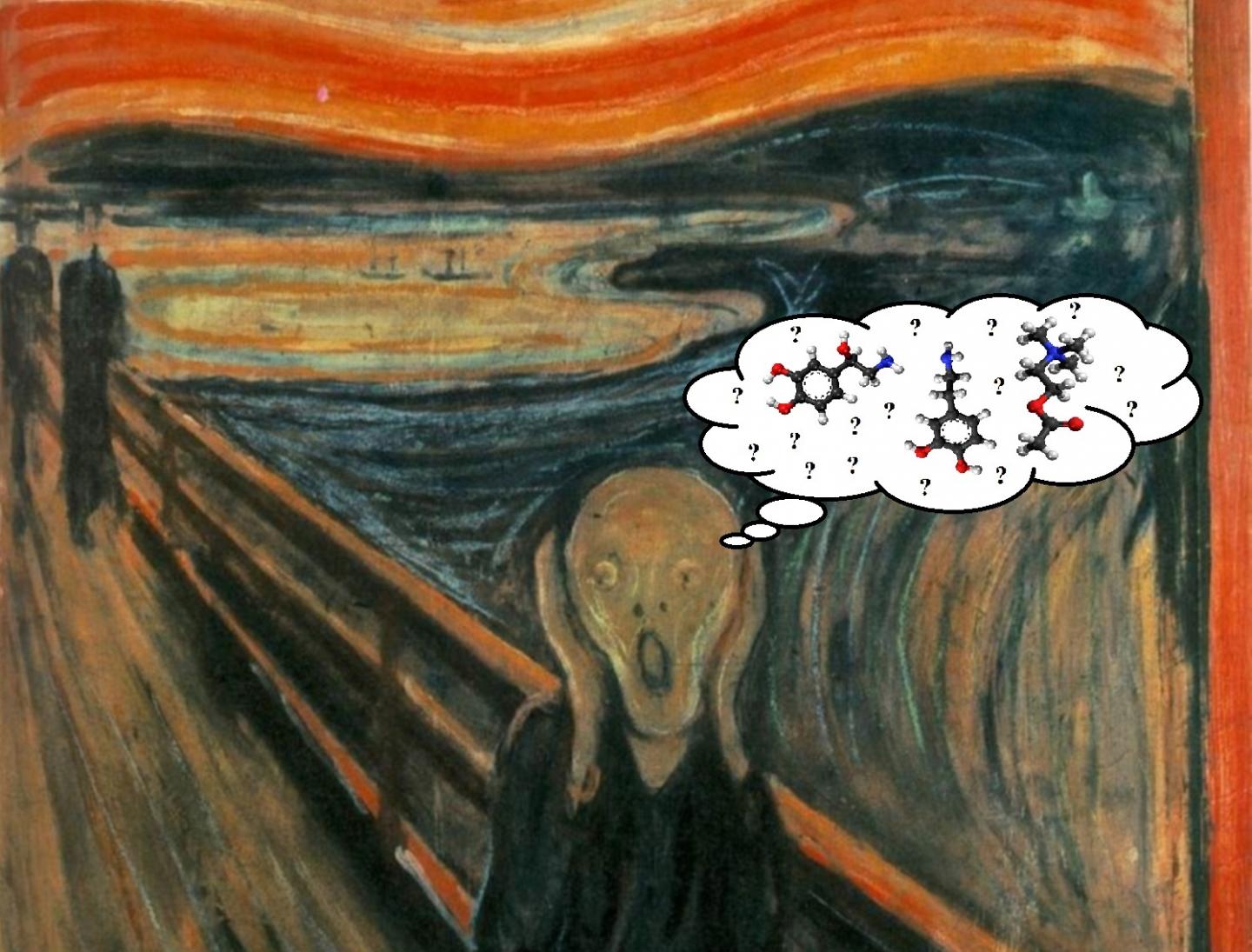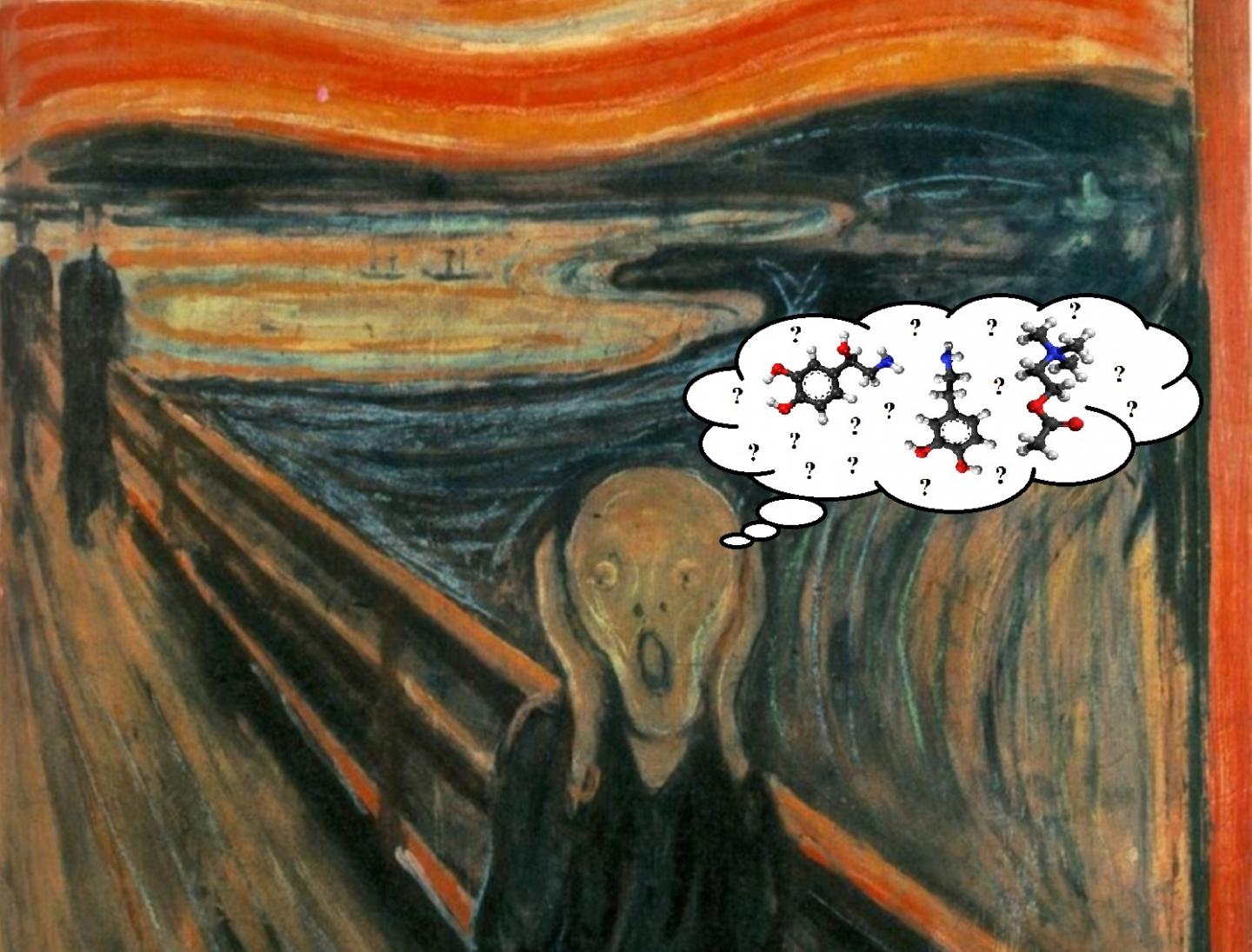
Credit: Edvard Munch and Roland Roberts
New research has revealed how three important brain signaling chemicals affect the way that we handle uncertainty. It turns out that noradrenaline regulates our estimates of how unstable the environment is, acetylcholine helps us adapt to changing environments, and dopamine pushes us to act on our beliefs about uncertainty. The research, publishing 15 November in the open-access journal PLOS Biology, was led by Louise Marshall and Dr Sven Bestmann at the UCL (University College London) Institute of Neurology.
The study involved 128 healthy participants who took part in a reaction-time task designed to test how they handled uncertainty. Participants were all given either a placebo or a drug to block noradrenaline, acetylcholine or dopamine before starting the task. Participants responded to symbols that were presented one after the other by pressing a corresponding button. The probability of each symbol appearing was dependent on the symbol that appeared previously; for example, if a participant had just seen symbol A, there was an 85% chance that symbol B would appear next. Every 50 trials, these probability patterns changed without warning, so participants had to detect these new patterns and adjust their responses accordingly.
Lead author Louise Marshall said: "Interacting with our dynamic and ever-changing environment requires us to frequently update our beliefs about the world. By learning the relationships that link events occurring in our environment, we can predict future events, and execute fast, accurate responses. However, the environment's complex dynamics give rise to uncertainty about the relationships between events, and uncertainty about the stability of these relationships over time. Several brain chemicals have been proposed to modulate how we handle uncertainty. Here we combined pharmacological interventions and novel computational models to determine how noradrenaline, acetylcholine and dopamine enable our brains to learn the changing relationships in our environment. The results shed important light on how humans learn to behave under uncertainty."
###
In your coverage please use this URL to provide access to the freely available article in PLOS Biology: http://journals.plos.org/plosbiology/article?id=10.1371/journal.pbio.1002575
Citation: Marshall L, Mathys C, Ruge D, de Berker AO, Dayan P, Stephan KE, et al. (2016) Pharmacological Fingerprints of Contextual Uncertainty. PLoS Biol 14(11): e1002575. doi:10.1371/journal.pbio.1002575
Funding: This work was supported by the Medical Research Council (LM and AOdB), the European Research Council, grant number ActSelectContext 260424 (SB), the Gatsby Charitable Foundation (PD), the Clinical Research Priority Program "Molecular Imaging" (KES), the René and Susanne Braginsky Foundation (KES), the Tourette Syndrome Association (DR), a Dorothy Feiss Scientific Research Grant (DR), and core funding from the Wellcome Trust Centre for Neuroimaging (CM) and the University of Zurich (KES). The funders had no role in study design, data collection and analysis, decision to publish, or preparation of the manuscript.
Competing Interests: The authors have declared that no competing interests exist.
Media Contact
Louise Marshall
[email protected]
############
Story Source: Materials provided by Scienmag





